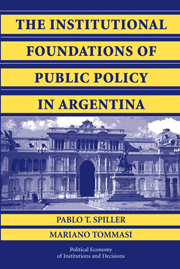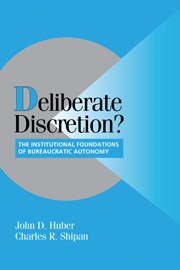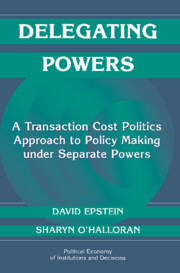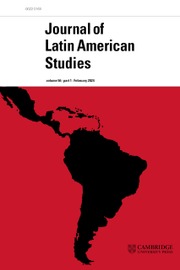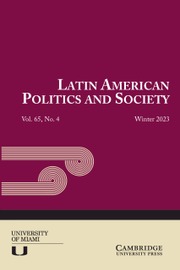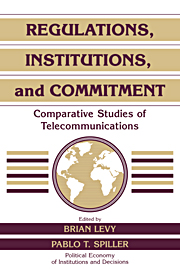The Institutional Foundations of Public Policy in Argentina
This book develops a general model of public policymaking, focusing on the difficulties of securing intertemporal exchanges among politicians. By using this model the authors are able to derive a series of empirical propositions about the conditions under which policies are likely to be volatile, rigid, or high quality. In addition, the authors combine the tools of game theory with Williamson's transaction cost theory, North's institutional arguments, and contract theory, to provide a general theory of public policymaking in a comparative political economy setting. They also undertake a detailed study of Argentina, using statistical analyses on newly developed data to complement their nuanced account of institutions, rules, incentives and outcomes. Drawing on this research the book explores the reasons for Argentina's seeming inability to design and implement high quality public policies over a sustained period of time.
- Explains how to develop transaction cost models and apply them in a way that expands the understanding of a particular case or cases
- One of the few books by economists that takes politics seriously and actually understands political processes; it is a true work of political economy
- A methodological primer of how to develop a general model and then apply it well
Reviews & endorsements
"Spiller and Tommasi mobilize formal models and rigorous reasoning to probe the depth of the ongoing crises -- both political and economic -- in Argentina. In doing so, they move the goal posts in the field of comparative politics."
Robert H. Bates, Harvard University
"The Institutional Foundations of Public Policy in Argentina is a fascinating and innovative contribution to contemporary political economy. It recommends shifting focus from the long-term structural factors to an analysis of whether the struggle for power and the structure of political institutions encourage public officials to invest in stable, flexible, and public-regarding policies. Pablo Spiller and Mariano Tommasi provide theoretically sophisticated and empirically rich studies of why Congress, the Supreme Court, the bureaucracy and federalism in Argentinaa country rich with development potentialare unable to produce and stick by effective public policies. The Institutional Foundations of Public Policy in Argentina is a major achievement, one that will be indispensable for students of political economy, public policy, and development studies."
Fabrice Lehoucq, Centro de Investigaciones y Docencia Económicas (CIDE), Mexico City
"Noted economists Pablo Spiller and Mariano Tommasi offer a persuasive explanation of one of the most pressing issues for development. They account for the variation in the promotion of policies that serve the long-term interest of the polity and not just the short-term electoral and monetary interests of the policy-makers. This is political economy at its best. The Institutional Foundations of Public Policy in Argentina uses the most analytically sophisticated tools available in the service of understanding an important case. But this is far more than a single case study. Theirs is a general framework that represents a major contribution to the theory of political and economic development."
Margaret Levi, University of Washington
"Nothing like this study exists for any other country. Relying on positive political theory, this book is the first systematic approach to an integrated study of public policymaking. Spiller and Tommasi apply their approach to Argentina, showing why its political and economic institutions emphasize short-term time horizons that hinder cooperation and long-term solutions to major economic problems. Although Argentine political institutions have many of the features of the American separation of powers system, Spiller and Tommasi explain why these institutions work systematically differently in Argentina than the United States."
Barry R. Weingast, Stanford University
"Pablo Spiller and Mariano Tommasi's book on The Institutional Foundations of Public Policy in Argentina Argentina has been in progress for eight years and is worth the waiting. The authors combine an interdisciplinary framework (in which transaction cost analysis, the theory of repeated games, and positive political theory are joined) with deep archeological knowledge of the workings of politics and policymaking in Argentina. Both parts of this project are ambitious. Both parts complement the other.
Students of economic organization who are persuaded of the need for a focused lens to study the governance of contractual relations will not be surprised that a similar strategy is useful for studying complex political organization. The action in both arenas, moreover, resides in the microanalytics. But there is also much more. Contractual politics involves more players and is more difficult than contractual economics; and acquiring the requisite microanalytic knowledge of the phenomena in question is more demanding.
The authors have persevered in the face of these difficulties with the result that readers are in for a challenge and a treat. Our understanding of the institutional foundations of public policy in Argentina and more generally have been deepened and transformed in conceptual, theoretical, public policy, and empirical respects. "
Oliver E. Williamson, University of California, Berkeley
Product details
July 2009Paperback
9780521145787
254 pages
229 × 153 × 18 mm
0.34kg
Available
Table of Contents
- Part I. An Intertemporal Approach to Policymaking:
- 1. Sketch of the framework and implications
- 2. A theory of intertemporal political cooperation
- Part II. The Workings of Political Institutions, Policymaking, and Policies in Argentina:
- 3. Congress, political careers, and the provincial connection
- 4. Federalism, Argentine style
- 5. The Supreme Court
- 6. The bureaucracy
- 7. The nature of public policies in Argentina.

